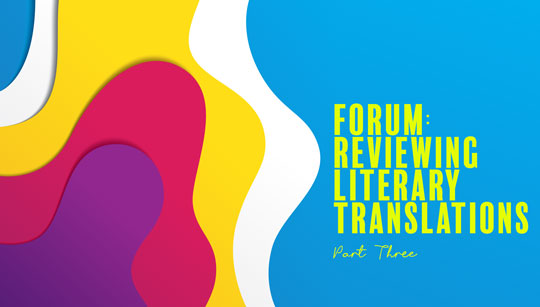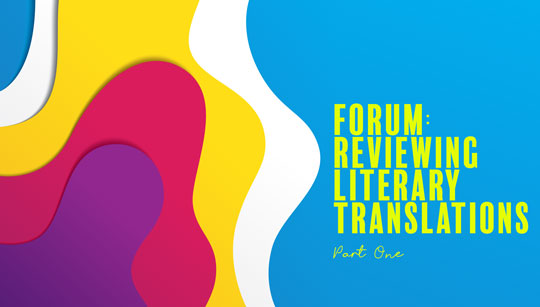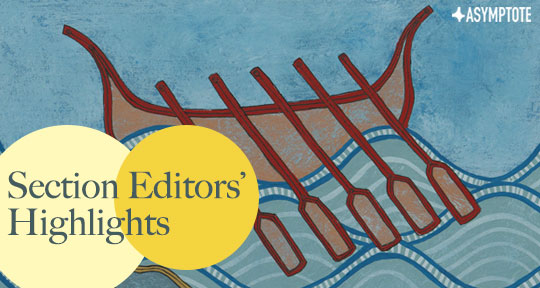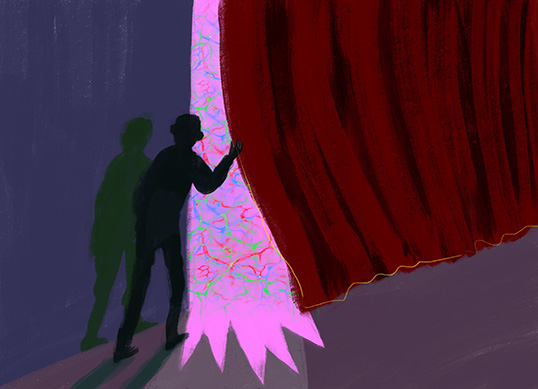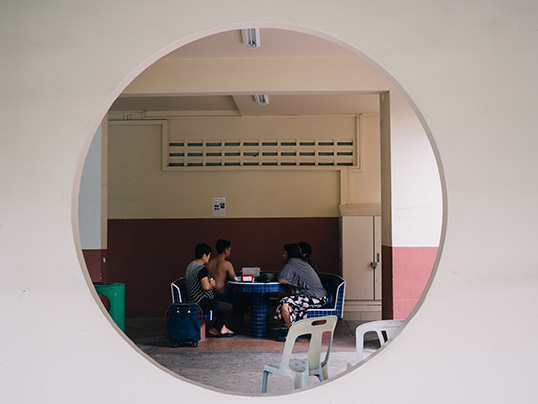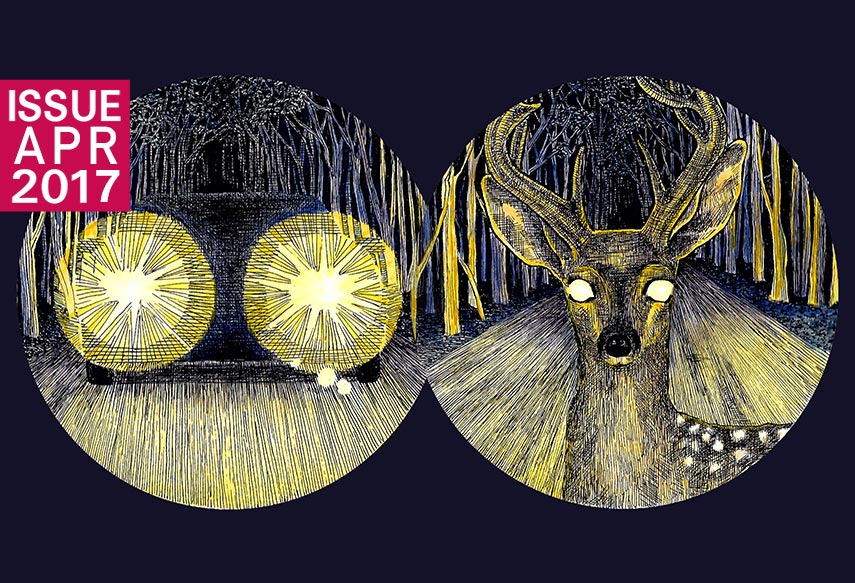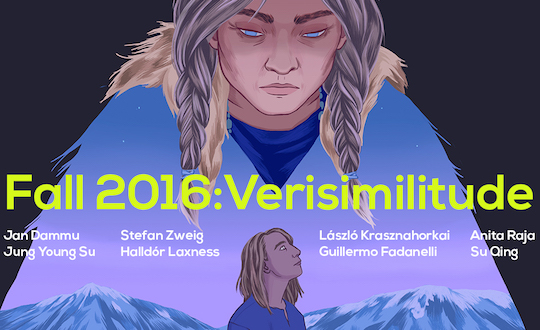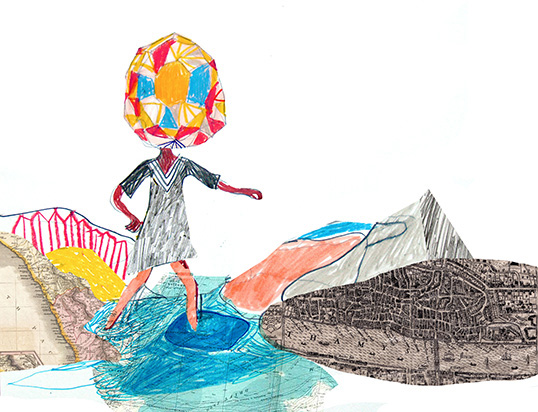Eleven days after its launch, Asymptote’s Fall 2019 issue continues to capture the zeitgeist. Many of its pieces, drawn from a record thirty-six countries, simmer with polyvocal discontent at the modern world, taking aim squarely at its seamy underbelly: the ravages of environmental degradation, colonial resource extraction, and media sensationalism of violence, in particular. If you’re still looking for a way in, perhaps our Section Editors can be of some assistance. Their highlights from the edition follow:
From Lee Yew Leong, Fiction, Poetry, and Microfiction Special Feature Editor:
Via frequent contributors Julia and Peter Sherwood, an excerpt from Czech writer and dramaturg Radka Denemarková’s latest Magnesia Litera Prize-winning novel, Hours of Lead, brings us into the bowels of a Chinese prison, bearing witness to a dissident girl’s defiance of state repression and censorship. Inspired by Václav Havel, the protagonist’s struggle is entirely private and self-motivated, untethered from any broader democratic collective or underground movement. Her guards are driven mad by her equanimity and individuality in the face of savage interrogation: “Even her diffident politeness is regarded as provocative. As is her decency. Restraint. Self-control. Humility. . . The guards find her very existence provocative.” Renounced by her parents and rendered persona non grata, “a one-person ghetto,” by the state, her isolation is both liberating and the ultimate gesture of self-sacrifice.
Meanwhile, poet Fabián Severo—the only Uruguayan writing in Portunhol, the language of the Uruguayan frontier with Brazil—revels in an act of presence just as radical and defiant of the mainstream, resisting the state’s attempted erasure of his language. Laura Cesarco Eglin and Jesse Lee Kercheval’s translation sings: “This language of mine sticks out its tongue at the dictionary/ dances a cumbia on top of the maps / and from the school tunic and bow tie / makes a kite / that flies / loose and free through the sky.” Don’t overlook the luminous poems of prolific French and Martinican Creole writer Monchoachi, whom Derek Walcott has credited for “completely renewing our vision of the Creole language.” “The Caribbean could be considered a workshop for the modern world,” he conveys in Eric Fishman’s English translation, “with its deportations, its exterminations, and also its ‘wildly multiple’ side, its ‘ubiquity of voices and sounds.’” READ MORE…


